Every year on the 5th of May the National Committee 4 and 5 May organizes free Liberation Festivals. These free Liberation festivals are enormously popular. There are 14 Free Liberation Festivals spread over the Netherlands, and together they are the biggest music event in the country.
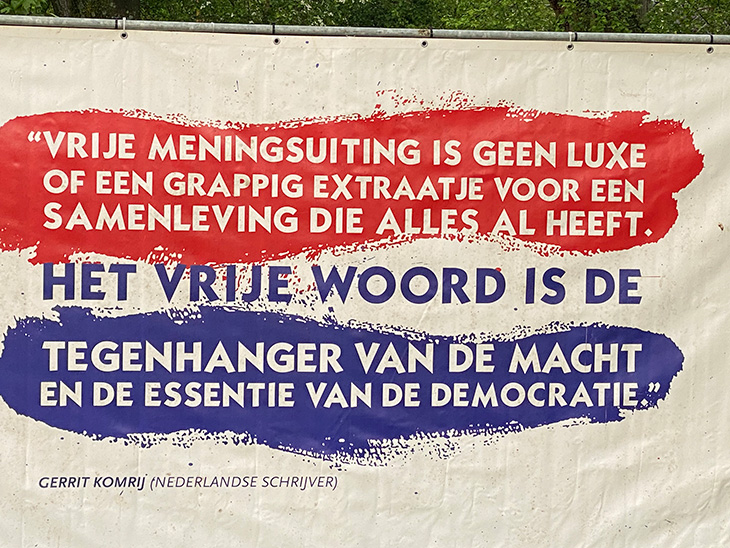
Power and Charm of the Liberation Day
The power of the free liberation festival is that everyone, no matter how different, how young or old, comes together to celebrate freedom and enjoy art and culture. The charm of the liberation festival was that you could enter the festival area without planning and enjoy all kinds of different stages and just enjoy a drink. So many people are now coming to the liberation festivals that more security measures have been taken. The festival areas have been cordoned off and there are secured entrance gates, and glass may no longer be taken into the festival area.
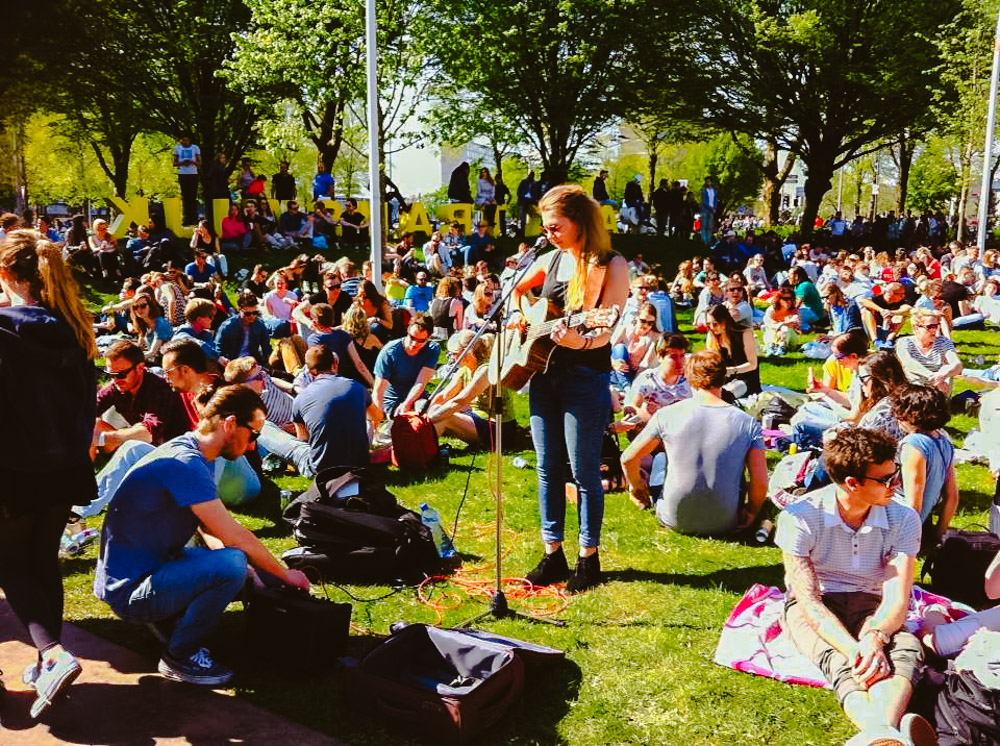
Holiday on Liberation Day
In the Netherlands, schools have a holiday from the last week of April till the first week of May. In those 2 weeks is King’s Day, Commemorate and Remembrance Day and Liberation Day celebrated. Because of the holiday, many people take a leave from work so that they can be present at the Liberation Festival. Once every 5 years, Liberation Day is an official national holiday for everyone.
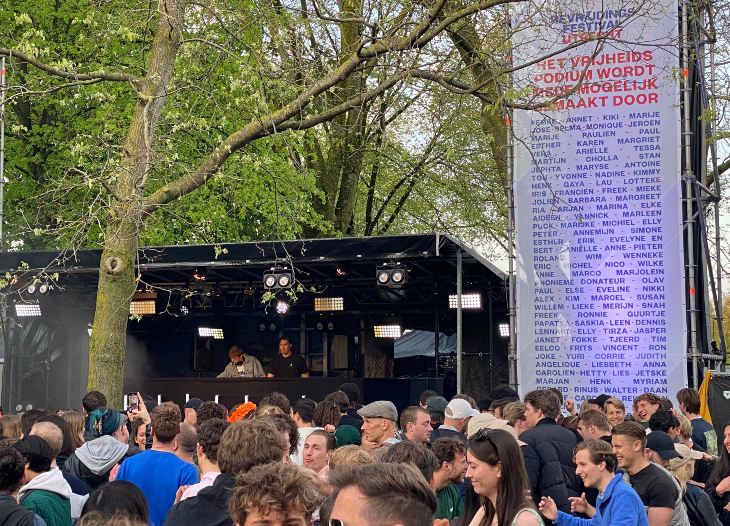
Where to find the Free Liberation Festivals
All the 5 May Free Liberation Festivals start at 13.00 hours and last until 24.00 hours.
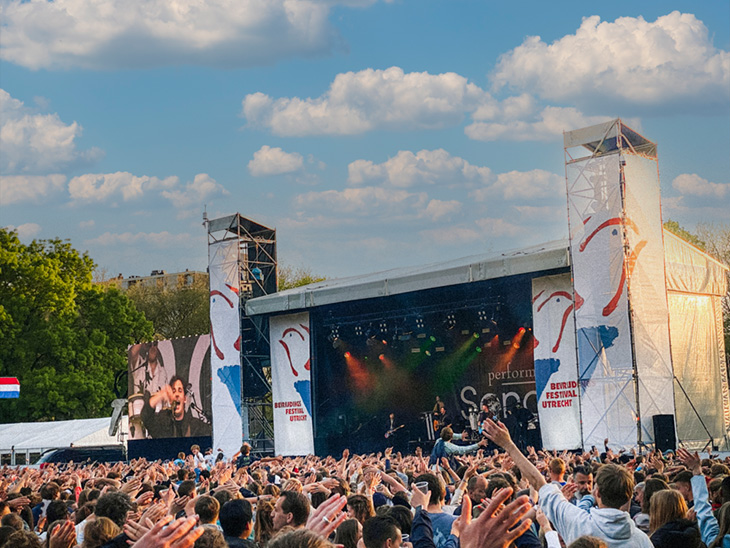
Read More about all 5 May Freedom Festivals
➔ Gelderland | Wageningen | City of Freedom | Agenda 5 May | City center of Wageningen
➔ Amsterdam, 4 and 5 May, Liberation festival | Cultuurfabriek, Westergasfabriek Amsterdam
➔ Noord Brabant | Den Bosch | Agenda 5 May | Bevrijdingsfestival at Schans, ‘s-Hertogenbosch
➔ Noord Brabant | Breda | Agenda 5 May | Poporganisatie Breda Bevrijdingsfestival Breda
➔ Zuid Holland | Den Haag | The Hague | Agenda 5 May | Bevrijdingsfestival at Malieveld, Den Haag
➔ Zeeland l Vlissingen | Agenda 5 May | Bevrijdingsfestival at the square of freedom in Vlissingen
➔ Utrecht | City of Utrecht | Agenda 5 May | Bevrijdingsfestival Utrecht at park Transwijk Utrecht
➔ Drenthe | Assen | Agenda 5 May | Festivalarea Baggelhuizen, Assen, Drenthe
➔ Overijssel | Zwolle | Agenda 5 May | Bevrijdingsfestival Zwolle at Wezenlandpark Zwolle
➔ Flevoland | Almere | Agenda 5 May | Bevrijdingsfestival Flevoland at City center of Almere
➔ Frysian | Leeuwarden | Agenda 5 May | City center of Leeuwarden
➔ Groningen | Agenda 5 May | Bevrijdingsfestival Groningen at Stadspark Groningen
➔ Noord Holland | Haarlem | Agenda 5 May | Bevrijdingspop Haarlem
➔ Noord Holland | Alkmaar | Agenda 5 May | Bevrijdingsfestival Alkmaar
➔ Limburg | Swalmen near Roermond | Agenda 5 May | Bevrijdingsfestival Limburg
Overview Free Liberation Festivals locations
Message of Freedom
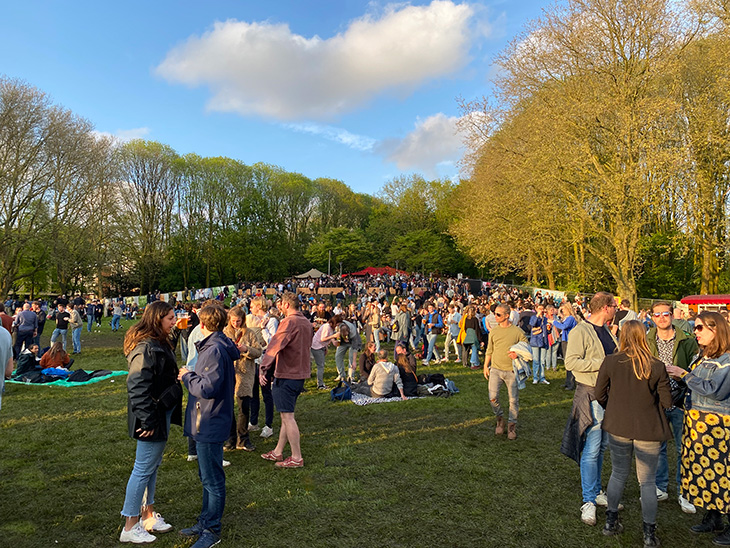
Capitulation WW2
Wageningen is the city where World War II came to an end. On May 5, 1945, the Germans signed the capitulation document at Hotel de Wereld. This act marked their unconditional surrender, effectively ending the war. Since then, May 5th has been a day of celebration in the Netherlands, known as Liberation Day.
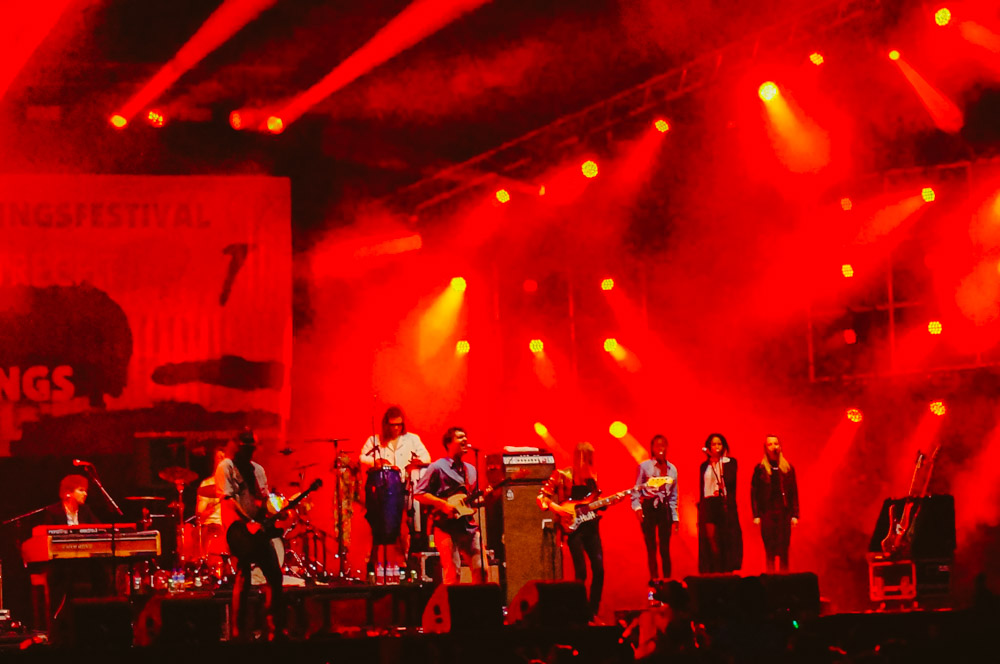
City of Liberation is Wageningen
Wageningen, known as the City of Liberation, serves as the inaugural site for 14 Liberation Festivals. Following the National Remembrance Capitulations of 1945, the Liberation Defile commences the festivities in Wageningen. A procession of 1500 runners embarks from Wageningen, carrying the liberation fire and its message to each of the 14 liberation festivals. The festivities kick off with the ceremonial lighting of the liberation fire.
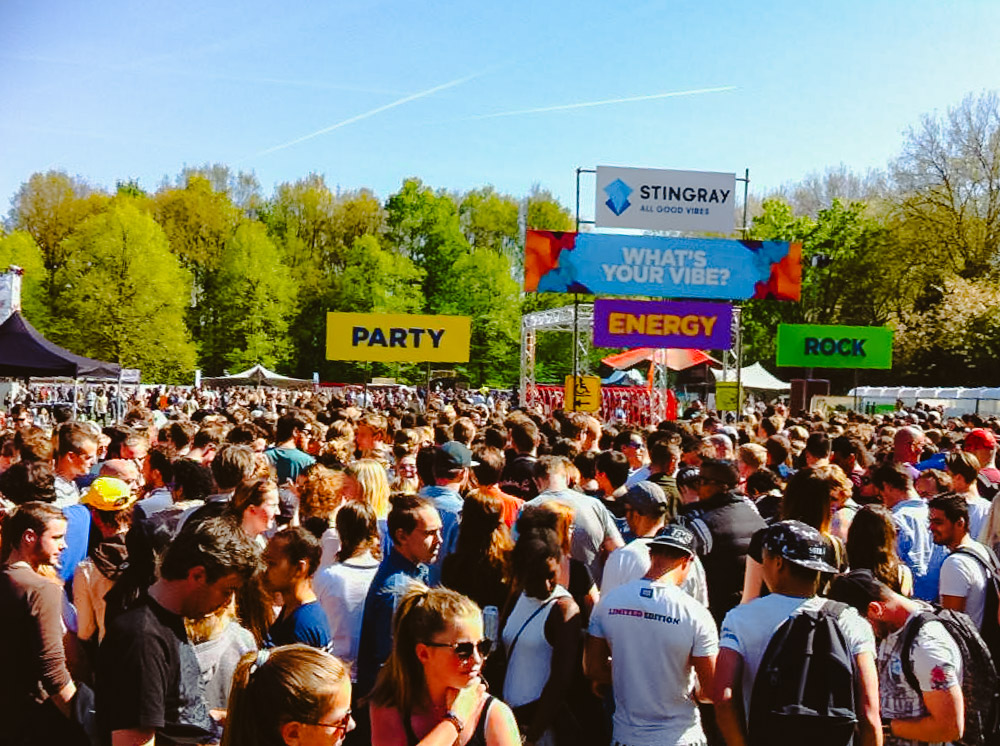
Liberation Festival theme and slogans
Peace and security are fragile, together we are responsible for freedom.
Freedom tells: prelude to 80 years of freedom. Freedom is something you share.
Liberation Festival
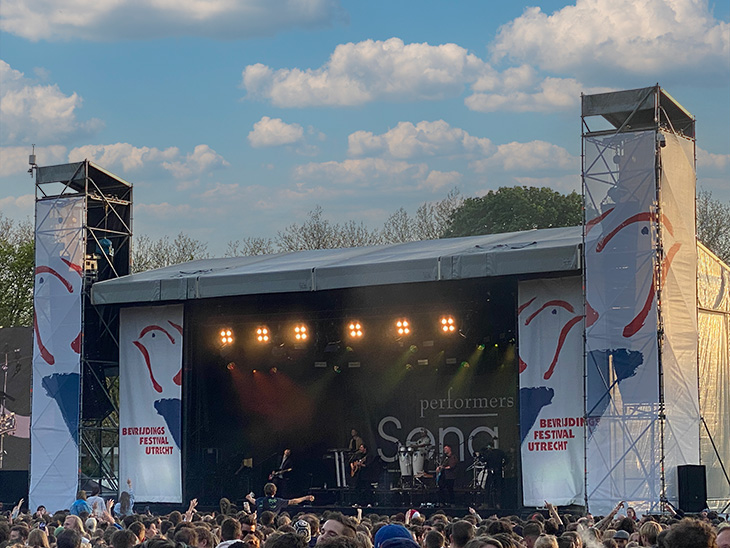
The Dutch Liberation Festivals are a series of annual festivals held in the Netherlands on May 5th to celebrate the country’s liberation from Nazi Germany during World War II. The festivals feature music, performances, speeches, and other events that aim to promote freedom, democracy, and human rights.
History of the Dutch Liberation Festivals
The first Liberation Festival was held in 1980 in Amsterdam to mark the 35th anniversary of the end of the war. Since then, it has grown into a nationwide celebration with events taking place in many cities and towns across the Netherlands.
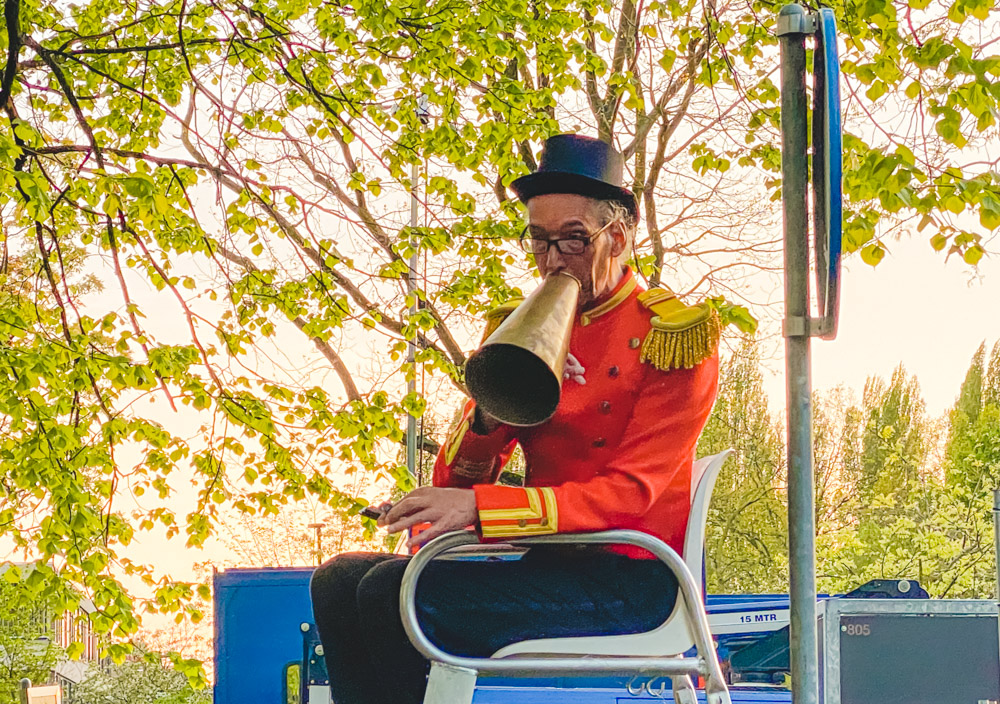
The Liberation Musical Festival is for everyone
The Liberation Festivals typically attract large crowds and feature performances by both established and up-and-coming Dutch and international musicians. The festivals are considered an important way to promote cultural diversity and social cohesion in the Netherlands.
Program activities Liberation Day
In addition to music and entertainment, the festivals also feature educational activities, such as exhibitions, workshops, and discussions, that focus on the themes of freedom, democracy, and human rights. The festivals provide an opportunity for people of all ages and backgrounds to come together to celebrate the values that are important to them and to reflect on the meaning of freedom and its significance in contemporary society.
5 May Liberation Festival
Experience the electrifying energy as over 200 artists take the stage across 40 platforms at the Liberation Festivals, drawing in hundreds of thousands of visitors. Join the celebration of freedom and unity unlike any other!
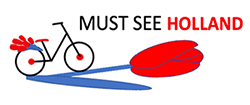

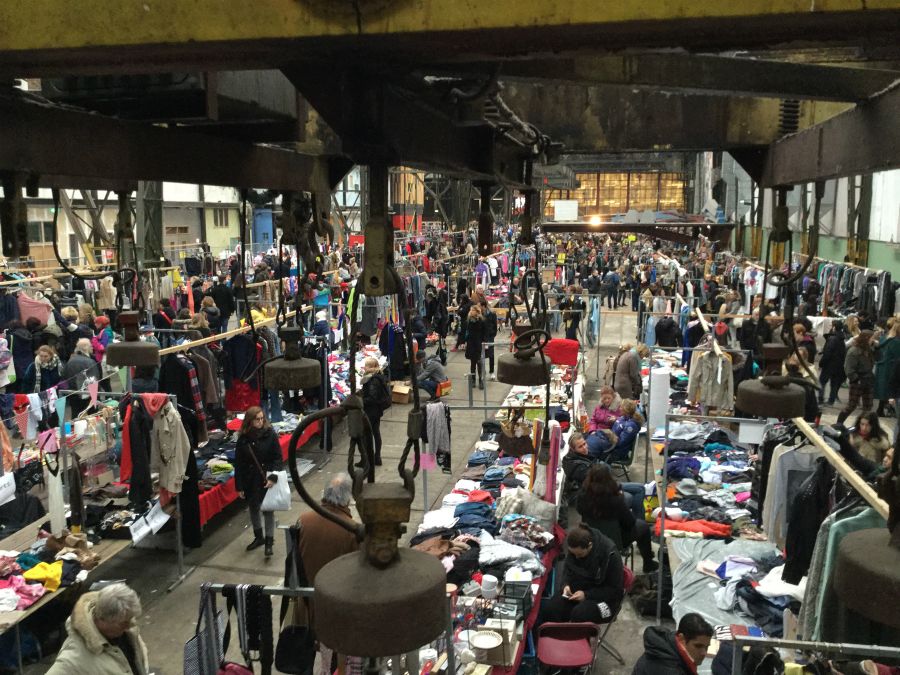



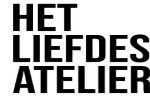
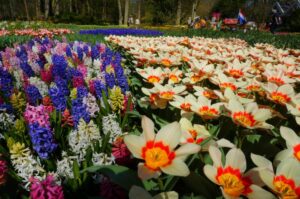
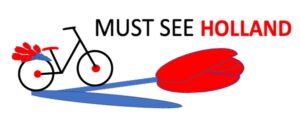
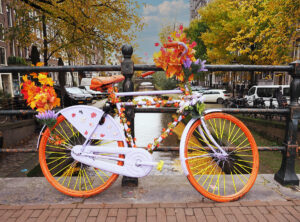
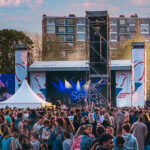
Leave A Reply